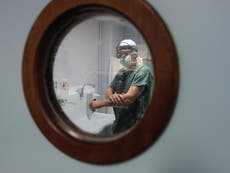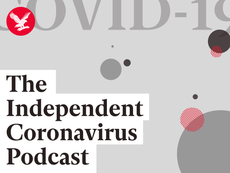Coronavirus has made death a fact of life again – we should embrace it
Medical progress has bred complacency, an assumed invincibility that Covid-19 is rapidly unravelling. From my perspective as an academic who studies death, that's a good thing
As an academic who works on death, I – like you – am watching incredulously what is happening right now.
For what coronavirus is exposing on a mass scale is our collective reluctance to face our mortality. As adults, we all know that we all die, but more or less ignore death until it happens. The reality of death is hidden away in hospitals, care homes and hospices; the deceased are tended to by mortuary technicians and funeral directors. Death happens to other people, in other places. This propensity to deny death dates at least to the 1960s when, newly free from world wars and with incredible advances in medical technology, people began to live for longer and longer. Currently, the average age of death in the UK is 79 for men and 83 for women, compared to 55 and 60 respectively a century ago. Now, those who die before their parents are said to have done so prematurely. Yet it is not so long ago that it was common for children to die before their first birthday.
Our increasing ability to sustain bodies through illness to health using technologies from basic hygiene to vaccination has meant that human beings now live longer than they ever have before, and in better condition.
But progress has also bred complacency, an assumed invincibility that Covid-19 is rapidly unravelling. Continual news updates on coronavirus deaths are contributing to public panic; suddenly, death is real, even imminent.
Yet now is precisely the time to face up to our mortality and recognise that no one is bulletproof. In all likelihood, until a vaccine is created, we will all know someone who die of this virus or due to its implications for our healthcare system as a whole.
Despite our best efforts to extend life, in other words, we now cannot escape our mortality. As Seamus O’Mahoney has observed in The Way We Die Now, eventually our bodies simply wear out. Covid-19 brutally reminds us that the body we rely on day in, day out – its organs, cells, hormones – have an expiry date.
Yet not only do I think we should be talking about the fact that we die, but also about what happens after death. It may of course be that our choice is taken out of our hands, if governments decree that there are to be no funeral services – as is the case already in parts of Ireland and Northern Ireland – and that all bodies are to be cremated unless for religious reasons. But to have a sense of the type of mourning activity you would want when (not if) you die – from coronavirus or anything else – is vital information for those left behind. So if you have a favourite spot in your garden for your ashes to be buried, or a much-loved poem that you would like your eldest grandson or granddaughter to read at a small gathering later on a significant date, tell someone. In a time of such upheaval and fear – indeed, at any time of grief – knowing that you are respecting the wishes of the deceased can be very therapeutic.
Beyond contemplating what you want to happen after you die, let this also be an opportunity to reflect on how you want to live. Facing up to – and so making the most of – our limited time on this planet has never been more important.
Dr Kate Woodthorpe works at the Centre for Death and Society at the University of Bath.







Join our commenting forum
Join thought-provoking conversations, follow other Independent readers and see their replies